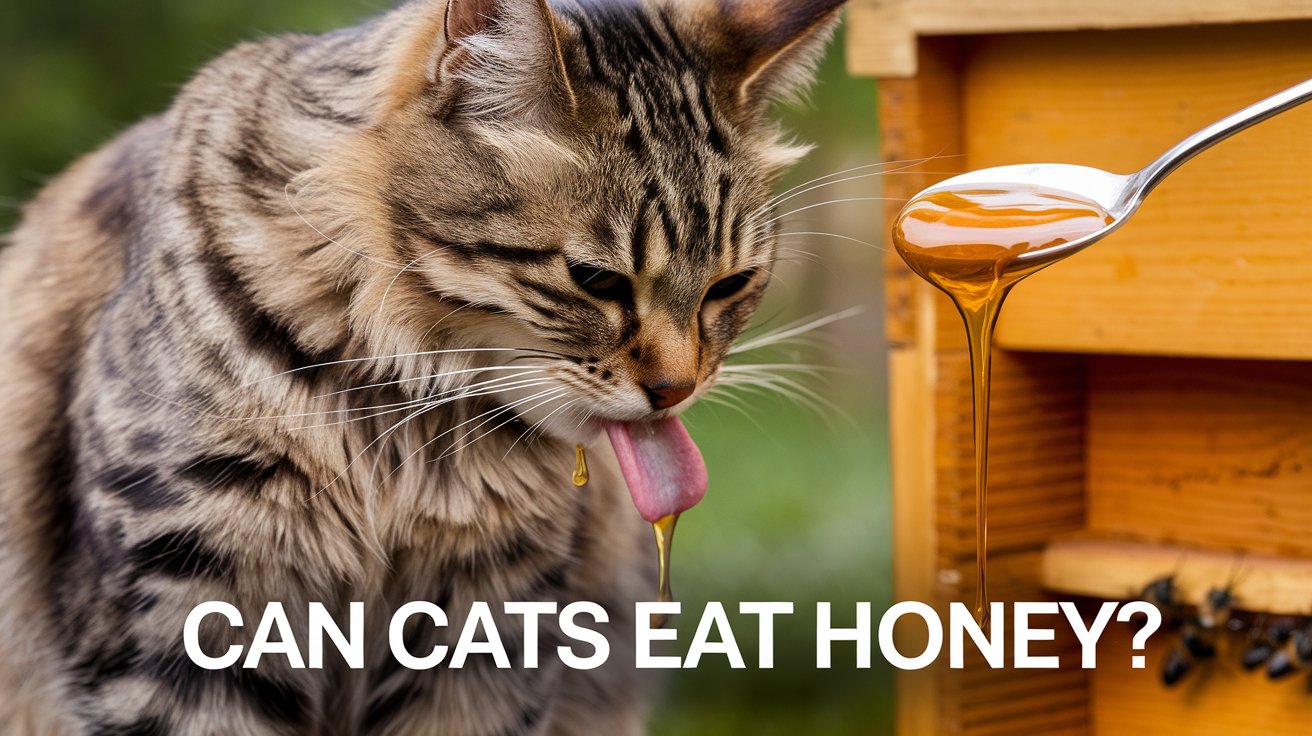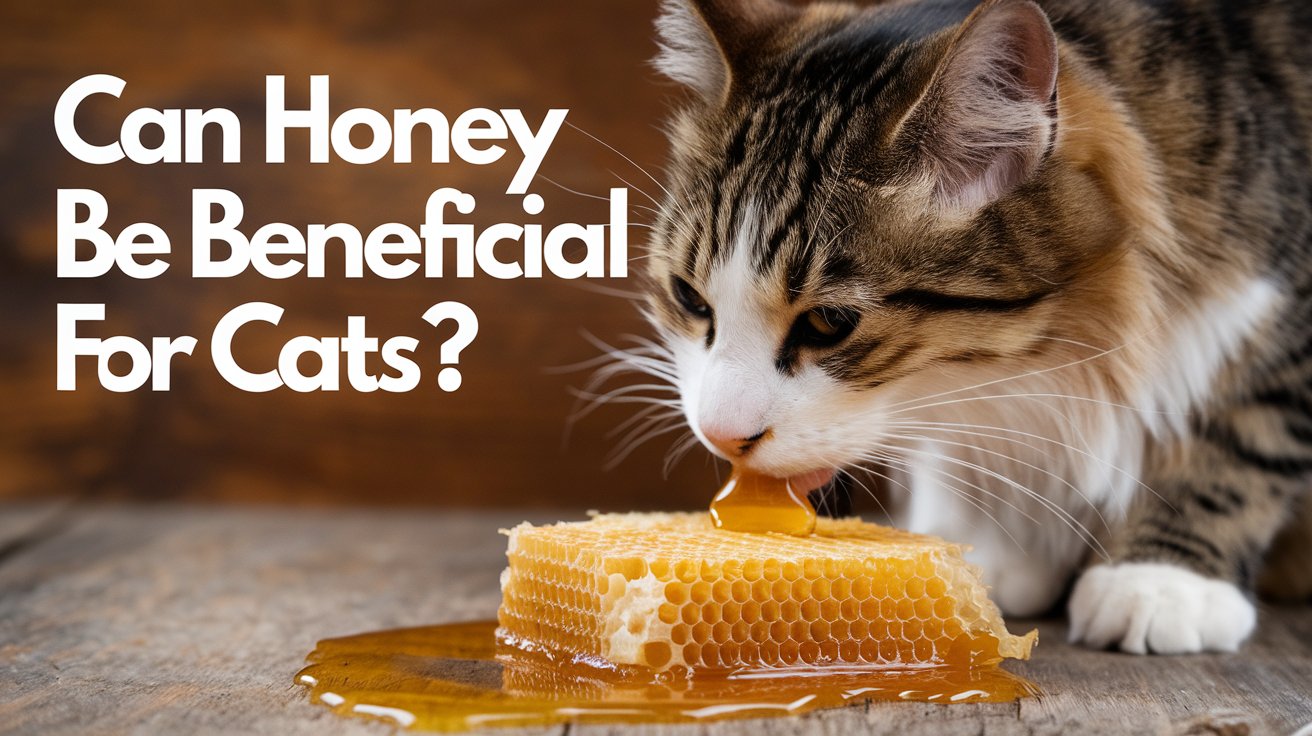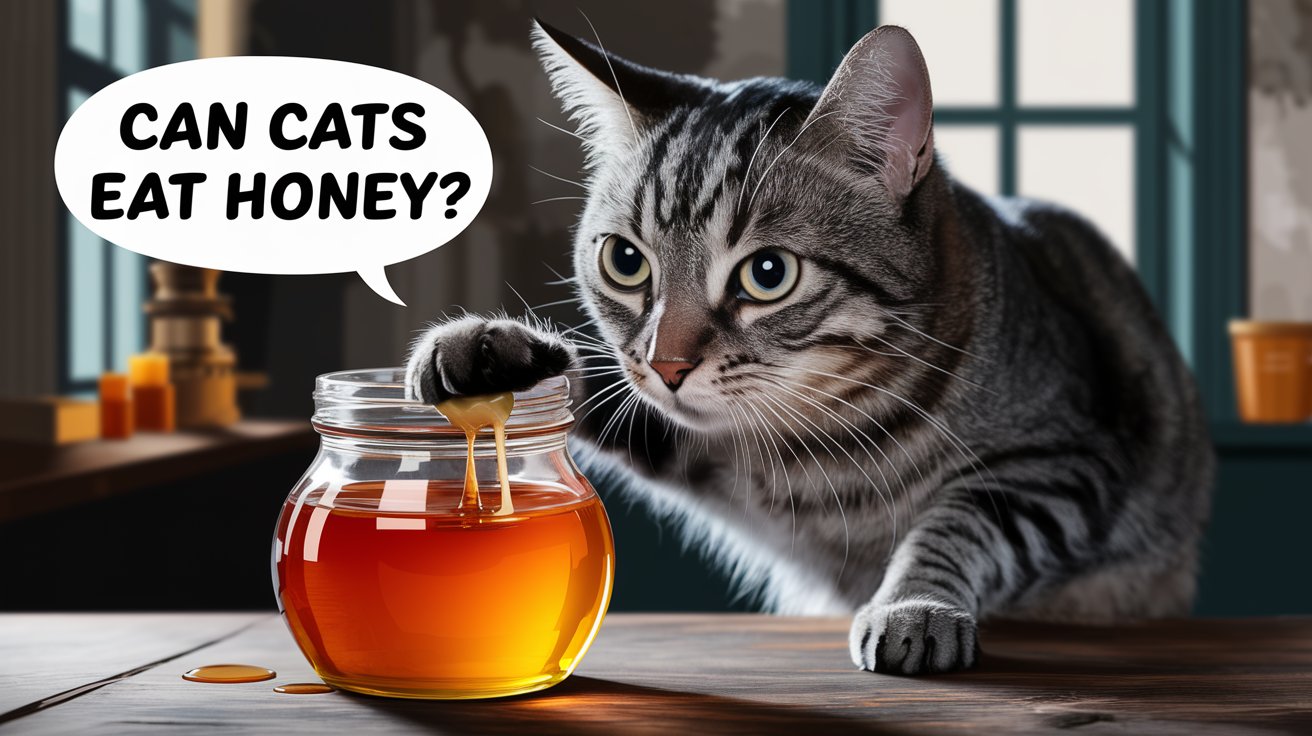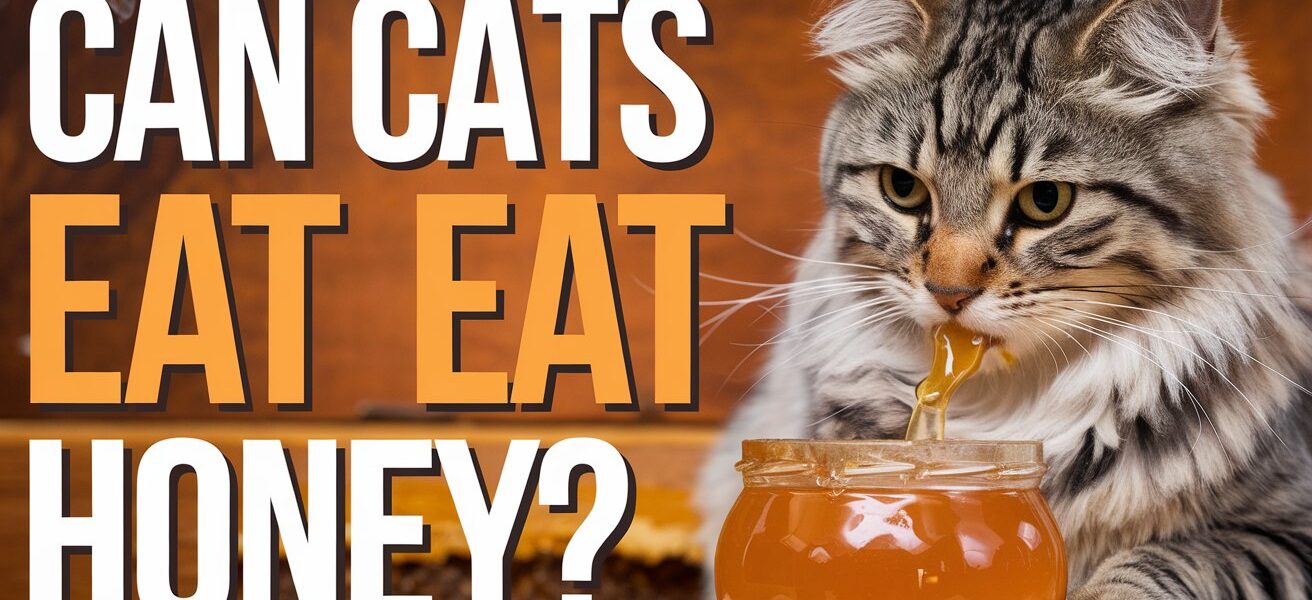
Can Cats Eat Honey?
Is Honey Safe for Cats?
The short answer is that while small amounts of honey aren’t toxic to cats, it should not be a regular part of their diet.
Cats are obligate carnivores, which means their primary nutritional needs come from animal-based proteins, not from carbohydrates or sugars like honey. Although honey is non-toxic, it doesn’t provide any essential nutrients that cats require. Feeding your cat honey can have some unintended consequences.
Potential Risks of Feeding Cats Honey
While honey is generally considered safe in small amounts, there are several risks associated with giving it to your cat:
- Digestive Upset: Cats have very sensitive digestive systems that aren’t designed to process sugars or carbohydrates effectively. Even a small amount of honey can lead to vomiting, diarrhea, or stomach cramps. If your cat already has a sensitive stomach, honey might worsen the condition.
- High Sugar Content: Honey is high in sugar, and regular consumption can lead to weight gain and, over time, obesity. This extra weight can put stress on your cat’s joints, organs, and cardiovascular system.
- Risk of Diabetes: High sugar intake, especially over an extended period, increases the risk of your cat developing diabetes. Cats don’t need sugar in their diet, and feeding them honey could contribute to metabolic issues down the road.
- Allergic Reactions: While rare, some cats may be allergic to honey. If your cat experiences any signs of an allergic reaction, such as itching, swelling, or difficulty breathing, contact your veterinarian immediately.
Cats and Their Unique Taste Buds
Interestingly, cats don’t have taste receptors for sweetness. Unlike dogs and humans, they cannot taste sweet foods, so offering them honey doesn’t appeal to their taste buds the way it might for you. In most cases, a cat may sniff honey out of curiosity but is unlikely to be drawn to it based on taste alone.

Can Honey Be Beneficial for Cats?
While honey is packed with antioxidants and has antibacterial properties, these benefits apply more to humans than to cats. Cats can’t process or utilize these compounds effectively. Moreover, there are no proven benefits of feeding honey to cats for medicinal purposes.
If you’re interested in boosting your cat’s health, it’s better to focus on providing high-quality cat food and supplements designed for felines. If your cat has health issues such as a weak immune system or a skin condition, consult with a veterinarian for safe and effective treatments.
How Much Honey is Safe for Cats?
If you’re determined to let your cat try honey, make sure it’s only a very small amount, such as a few licks. This should be an occasional treat, not a regular snack. Any more than that could upset their stomach and create unnecessary health risks.
Honey as a Topical Treatment for Cats
Although feeding honey to cats isn’t recommended, it can sometimes be used externally as a wound dressing. Honey’s natural antibacterial properties make it effective in preventing infections when applied to minor cuts and scrapes. Always consult your veterinarian before using honey or any other home remedies on your cat’s skin.
What to Do if Your Cat Eats Honey
If your cat accidentally eats a small amount of honey, there’s no need to panic. Most likely, they will experience mild gastrointestinal discomfort, such as diarrhea or vomiting, but this should pass within a day.
Alternatives to Honey for Cats
Instead of offering honey, there are many healthy treats that are much more suitable for cats. Some safe alternatives include:
- Cooked chicken or turkey: A lean protein source that aligns with their carnivorous diet.
- Small portions of plain, unseasoned fish: Salmon or tuna (without added salt or spices) can be a tasty treat for cats.
- Commercial cat treats: Designed specifically for cats, these are balanced with the right nutrients.
Should You Give Honey to Kittens?
It’s even more important to avoid giving honey to kittens. Their immune systems are still developing, and honey can contain spores that may lead to bacterial infections like botulism, which is dangerous for young animals. Always stick to kitten food and treats specifically formulated for their age group.
FAQs
Can honey cure my cat’s cold?
Honey is sometimes used in human cold remedies, but it’s not an effective treatment for cats. If your cat is sneezing or has cold symptoms, it’s best to consult a vet for appropriate care.
Is manuka honey safer for cats than regular honey?
Manuka honey is known for its stronger antibacterial properties, but it’s still not necessary or recommended for cats. Any honey, including manuka honey, should be used with caution and only under veterinary advice.
How should I apply honey to my cat’s wound?
First, clean the wound with water or a saline solution, then apply a thin layer of honey to the affected area. Apply a bandage after covering the wound with honey, and keep an eye on it for any signs of infection. However, it’s essential to talk to your vet before trying this method.
Can honey help with my cat’s digestion?
No, honey will likely upset your cat’s digestive system rather than help it. Cats have difficulty processing sugars, so feeding honey could cause digestive issues like diarrhea.
What should I do if my cat has an allergic reaction to honey?
If your cat shows any signs of an allergic reaction, such as swelling, hives, or breathing problems, seek emergency veterinary care immediately.
Can I use honey in homemade cat treats?
It’s best to avoid using honey in homemade cat treats. Cats don’t need sugar, and there are many other healthy ingredients you can use that won’t risk upsetting their stomachs.

Conclusion
While honey is safe for cats in very small amounts, it doesn’t provide any nutritional benefits and may lead to digestive upset, weight gain, or other health problems. Cats simply don’t need sugars like honey in their diet, and offering them cat-friendly treats or proteins is a much better alternative. If you have any concerns about your cat’s health or diet, it’s always best to consult with a veterinarian to ensure your furry friend is getting the care they need.

I am a dedicated writer and expert in cats, with years of experience studying feline behavior, health, and breeds. Passionate about sharing my knowledge, I provide valuable insights and practical advice to help cat lovers understand and care for their furry companions. When not writing, I enjoy spending time with my beloved cats, continually learning and deepening my expertise.



















